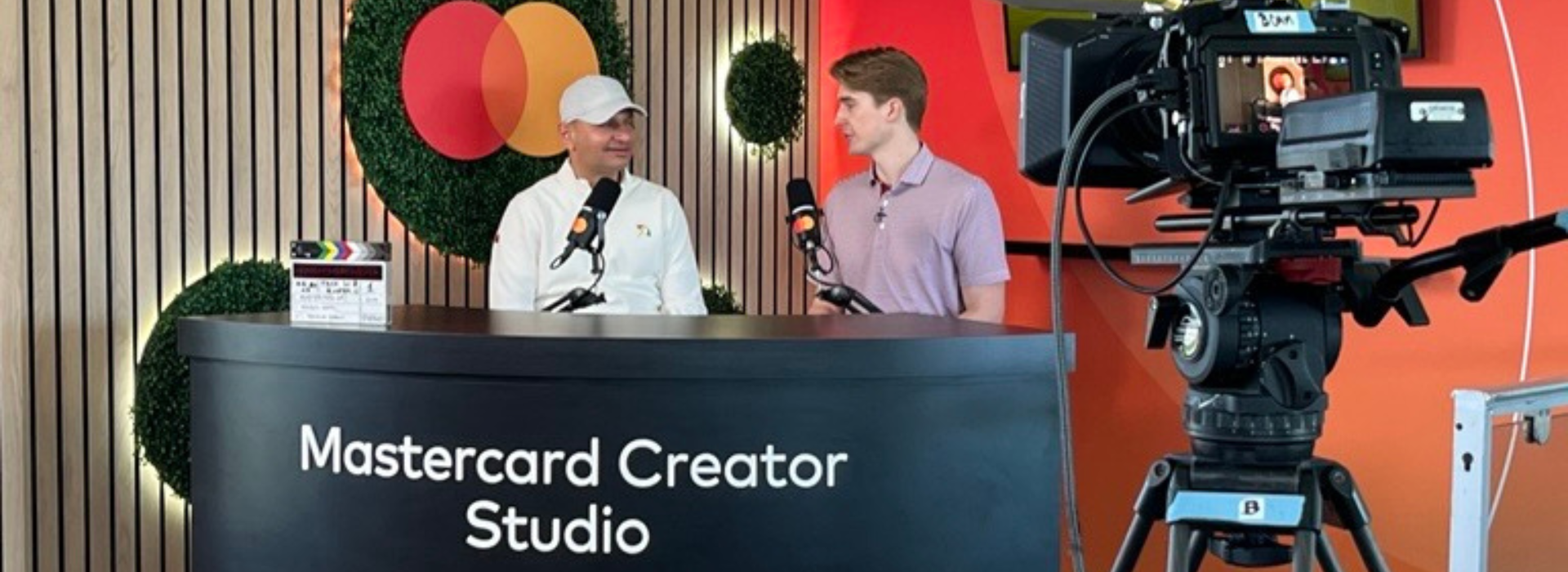From cheesehead to creator: How this digital native built a marketing business out of his passion
May 21, 2025 | By Sophie Hares
In Green Bay, Wisconsin, football ranks close to religion. Parents put their newborns on the 30-year wait list for Green Bay Packers season tickets, and devoted “cheesehead” fans travel from around the world to attend games.
Growing up just a stone’s throw from the storied team’s Lambeau Field, Tyler Webb started posting about football as a teenager. Those posts came as naturally as breathing to the sociable digital native with a passion for all things Packers.
Today he has parlayed that pastime and intuitive connection with his fellow fans into a successful career as a sports content creator. As co-owner of Uncle Charlie, a sports marketing agency, he reaches thousands on social media with short videos and posts on sports, whether it’s baseball, football, golf or bare-knuckle boxing.
Webb is among a fast-growing number of digital entrepreneurs who are upending traditional media models. Nimble TikTok, YouTube and Instagram creators who can tap into younger audiences are increasingly capturing brands’ ad dollars. Unleashing a wave of opportunities for would-be influencers, the creator economy is expected to hit $500 billion by 2027 as spending on social media marketing and short-form video platforms rockets, estimates Goldman Sachs.
Sports leagues, teams and the brands that sponsor them are among those taking the lead in harnessing the power of creators to attract younger audiences, offering exclusive interviews, behind-the-scenes peeks, fan experiences and storytelling.
At the Arnold Palmer Invitational presented by Mastercard, in March, Mastercard invited Webb to its debut Creator Studio, a dynamic content creation hub, where he interviewed PGA Tour golfer and Mastercard Ambassador Billy Horschel about his relationship with his caddy. He also spoke with PGA Tour legend Curtis Strange, also a longtime Mastercard Ambassador, about hitting one of the most difficult shots in golf.
He also got to bring along a special VIP caddy: his dad, who taught him to golf. The golf outing proved that sports is about deep personal connections and experiences that go far beyond 18 holes.
Dream big
As a sports-mad 15-year-old, Webb had his first job “interview” with a fellow high school football fanatic whom he convinced to let him help repost game highlights on his Twitter account, I Live for Football.
“I had to have my mom drop me off at the Starbucks for the interview. I was like, ‘You’ve got 10,000 followers — that’s the coolest thing. I just want to be involved,’” he remembers.
Within weeks he was fielding calls from companies keen for them to promote football camps on their page, and a local firm soon started paying Webb to run its social media to help sell its Packers T-shirts.
By the time he began studying biology at the University of Minnesota, with vague plans to become a doctor, he was making up to $2,000 a month from content. That was enough money to convince him that his future lay in marketing.
Graduating at the start of the pandemic in 2020, he stuck with the “fake it ‘til you make it” mantra, trying his luck as a freelancer and watching YouTube videos to quickly learn how to edit the content his clients wanted.
After a college friend, Jake Kranz, asked him to revamp a professional baseball league’s social media, the pair decided to join forces in 2022 to set up their agency, Uncle Charlie (another term for a curveball), which now employs six people.
Play hard
“I don’t think it’s ever been easier to make a career as a creator, but I can’t just fall out of bed, post a video of myself and I’m a millionaire,” says Webb, 26, who is now based in Minneapolis.
One 2023 survey showed that 57% of Gen Z are want to become creators (compared with 40% of other adults), but carving out a successful career is much harder than it looks.
“Creators transforming their passions into professions need to start thinking of themselves as small businesses,” says Ginger Siegel, Mastercard’s North American small business lead. They’re contending with many of the same challenges as traditional small businesses, such as inconsistent income, cash flow management and the need for fast and seamless payments — but they also need guidance and tools specific to their field.
That’s why Mastercard recently launched Business Builder debit and credit cards that include, for example, tools from Tailor Brands to help creators reduce personal liability for their online content and lower their tax burden. Mastercard also launched an educational program for creators that offers tips from marketers and brands on partnerships, tools to help with daily operations, including Small Business AI, and connections for continued mentorship and other opportunities.
Webb says that over the past decade he has steadily developed the skills necessary to thrive: business acumen as well as an ability to be creative and collaborative and to spot brand opportunities.
To stand out among a deluge of AI-generated videos and posts, he says, it’s essential to take deep dives into sports business stories to find unique angles that hook viewers and build confidence with brands is essential, he says.
“Sports matters to people,” Webb says. “When you dig into the human story and the history and tradition, you cast a much wider net to bring people into the fold.”
Banner photo: Tyler Webb, right, interviews Rustom Dastoor, the executive vice president of Marketing and Communications for Mastercard Americas, at the Arnold Palmer Invitational earlier this year.
